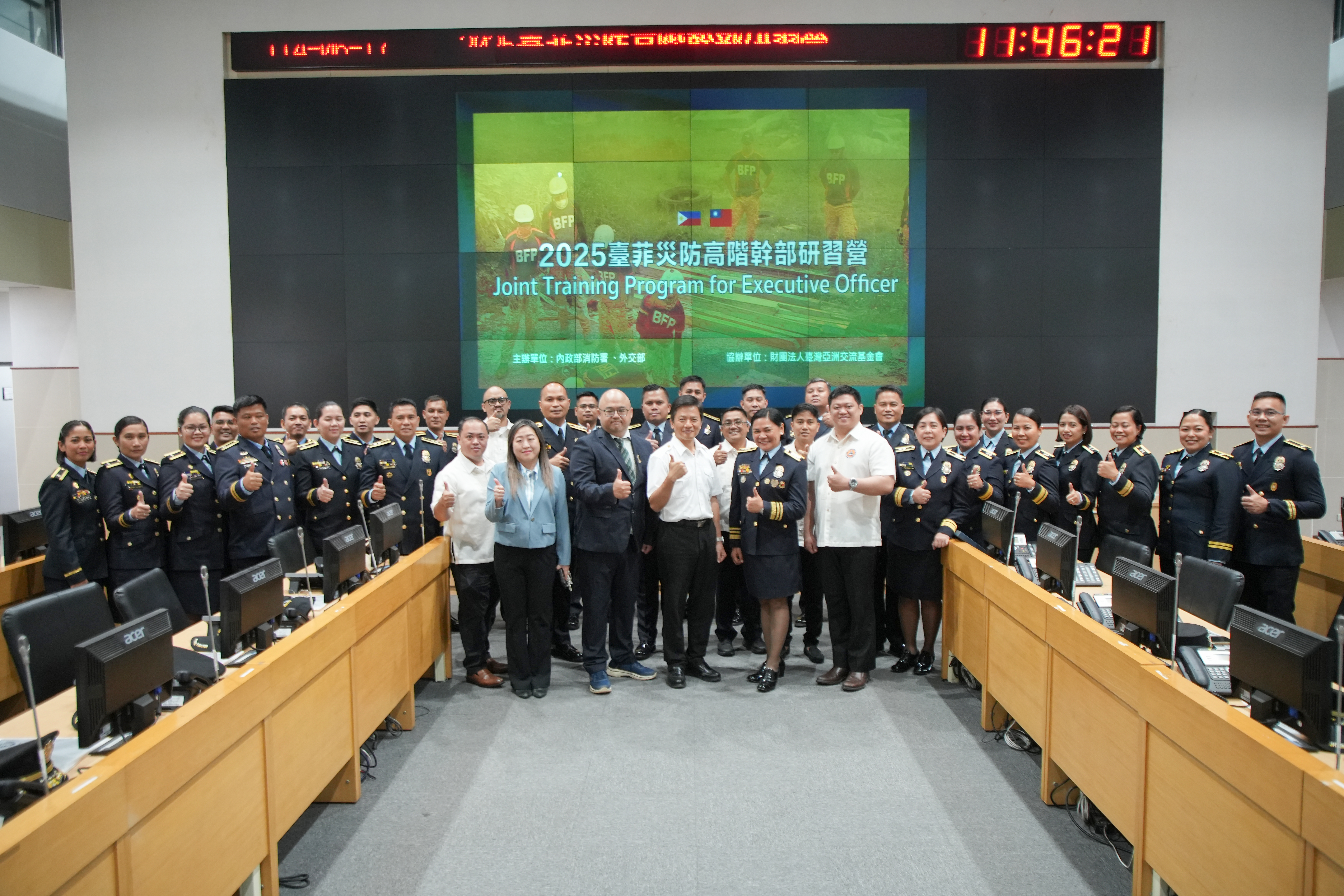
Co-hosted by the National Fire Agency (NFA) of the Ministry of the Interior and the Taiwan-Asia Exchange Foundation (TAEF), the “Taiwan–Philippines Joint Training Program for Executive Officers (JTP)” officially opened this morning (June 17) at the The Fire Training Center in Zhushan, Nantou. Senior officers from the Philippines gathered to begin several days of professional training and exchange.
The opening ceremony featured welcome remarks from Director of the NFA Training Center Mr. Hsieh Chih-Chiang, followed by speeches from TAEF Executive Director Dr. Alan Hao Yang, Director of the MECO Taichung Extension Office Ms. Sabrina Aaron-Eugenio, and Senior Superintendent Joanne Enriquez-Vallejo, Officer-in-Charge of the Training Service at the Philippine Bureau of Fire Protection—demonstrating both nations’ shared commitment to deepening cooperation in disaster risk reduction.
In his opening remarks, Director Hsieh Chih-Chiang, speaking on behalf of NFA Director-General Hsiao Huan-Chang, stated: “Taiwan and the Philippines are geographically close and face similar types of disasters.” Since 2010, over 400 Filipino firefighters have been trained in Taiwan, with exchanges growing more active after the pandemic. He congratulated the Philippines on its national day and highlighted Taiwan’s new one-year visa-free policy announced on June 13 as a sign of closer ties. He invited the delegation to NFA’s 30th anniversary on June 20, which will also mark the opening of new mountain and water rescue training facilities. Hsieh added that the center received international certification from the U.S. NFPA last year, and graduates will receive NFPA certificates. “The goal is to develop the center into a leading professional disaster response training base in the Indo-Pacific region,” he said, welcoming continued Philippine participation.
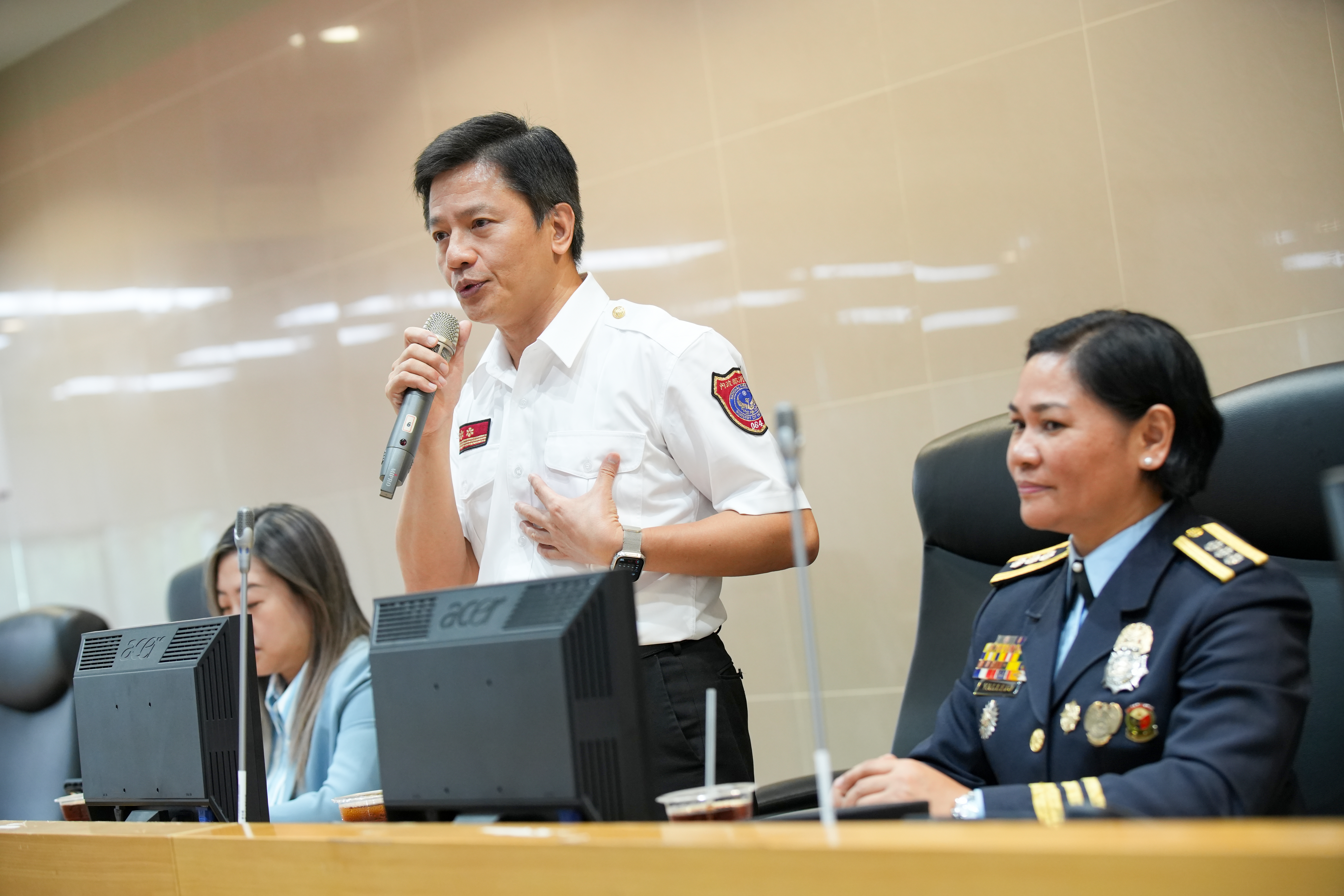
Executive Director Dr. Alan Hao Yang, representing Chairman Dr. Hsin-Huang Michael Hsiao, stated: “We are honored to co-host this program, which reflects not only a longstanding Taiwan–Philippines partnership but a new phase of regional resilience.” He added, “JTP stands not only for Joint Training Program but also Joint Force—it symbolizes solidarity between Taiwan and the Philippines; embodies the unity, brotherhood, and shared strength between the two countries.” Dr. Yang also emphasized JTP’s alignment with President Lai Ching-te’s New Southbound Policy Plus (NSP+) and Taiwan’s emerging Indo-Pacific Resilience Corridor. “Human security and disaster cooperation will become the cornerstone of regional collaboration,” he said, envisioning a future mutual mentorship network between Taiwan, the Philippines, and broader ASEAN partners.
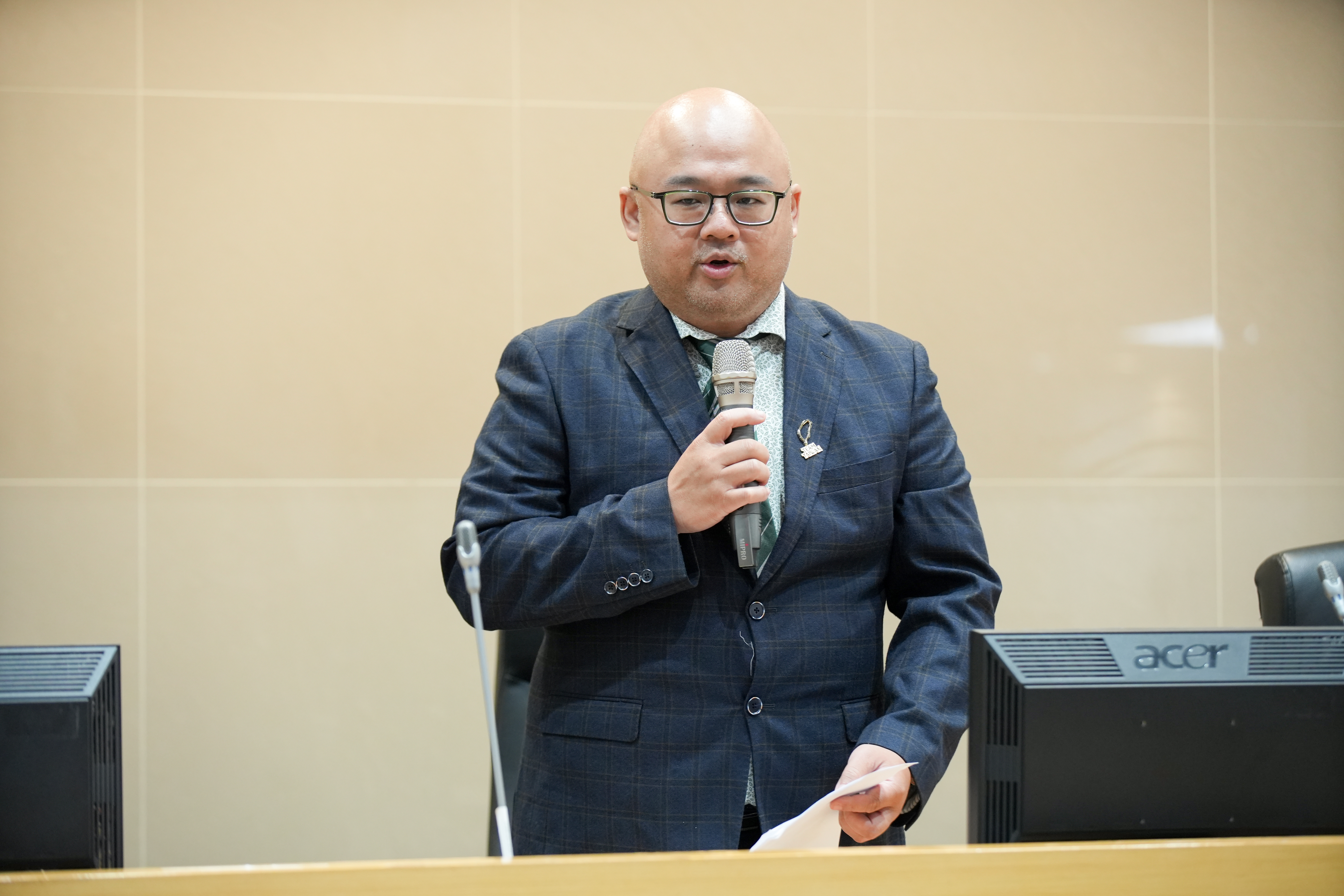
Director Ms. Sabrina Aaron-Eugenio expressed that it is a great honor to represent the Philippines at such a meaningful event.” She noted that despite generational differences, each cohort of firefighters shares the “same sense of purpose”—one that goes beyond technical learning and “builds lives, strengthens institutions, and fosters friendships across borders.” She praised the program for promoting international exchange and highlighted the severity of climate change, which has brought increasingly unpredictable and devastating disasters. In light of these challenges, she stressed the need to “call for a new generation of emergency responders, officers who are not only highly trained, well equipped, but also collaborative, innovative, and globally aware.”
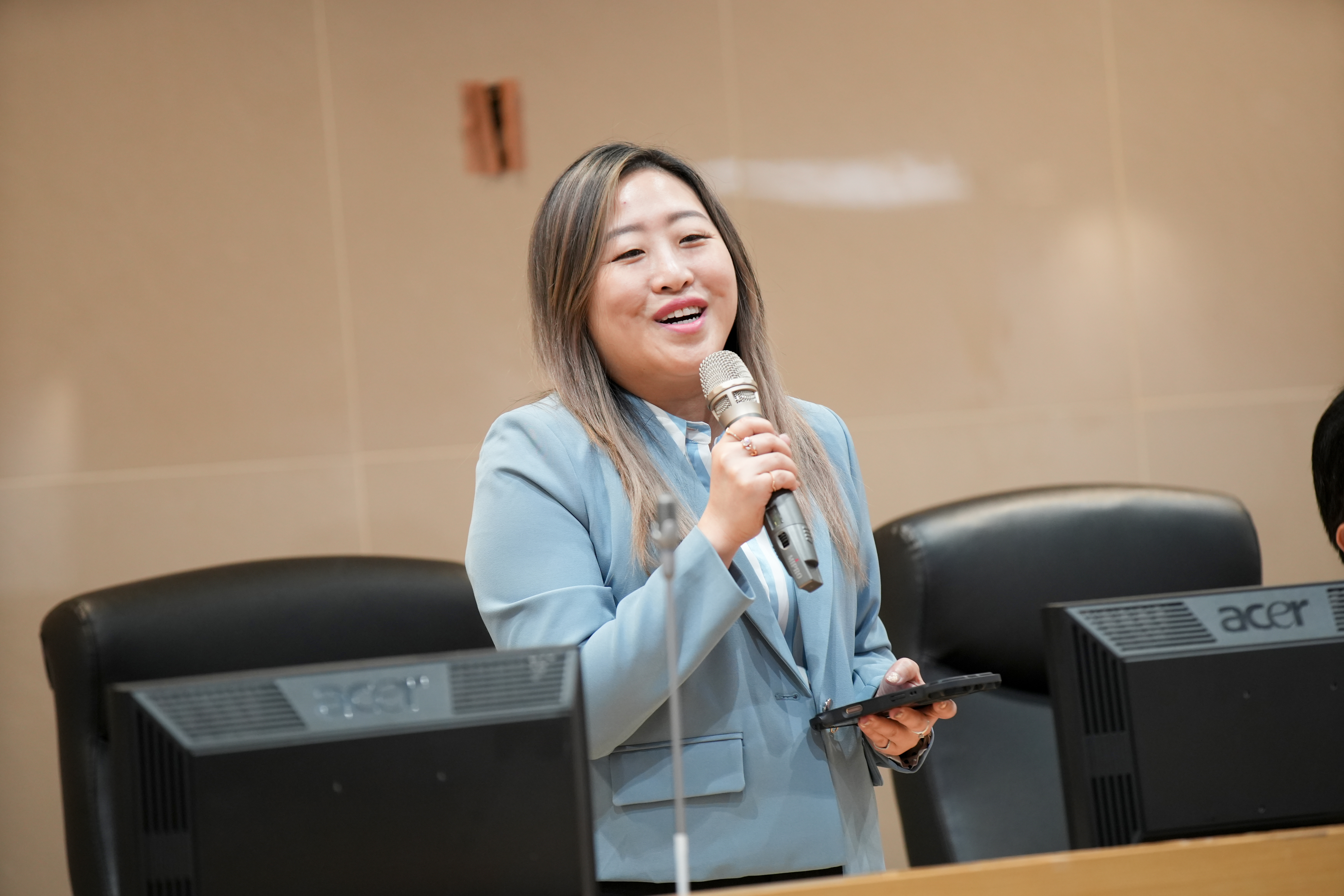
On behalf of the Philippine Bureau of Fire Protection, Senior Superintendent Ms. Joanne Enriquez-Vallejo expressed her gratitude for the opportunity to join this year’s program. She emphasized the growing complexity of “natural calamities, climate change, and other emergencies,” and stressed that “collaboration and knowledge-sharing become more critical.” She noted that the program will “certainly improve technical common sense and cultivate lasting partnership,” while also serving as a platform for “meaningful learning, cultural exchange, and strong professional ties.” She added that she looks forward to experiencing how modern technology can be integrated with disaster response systems.
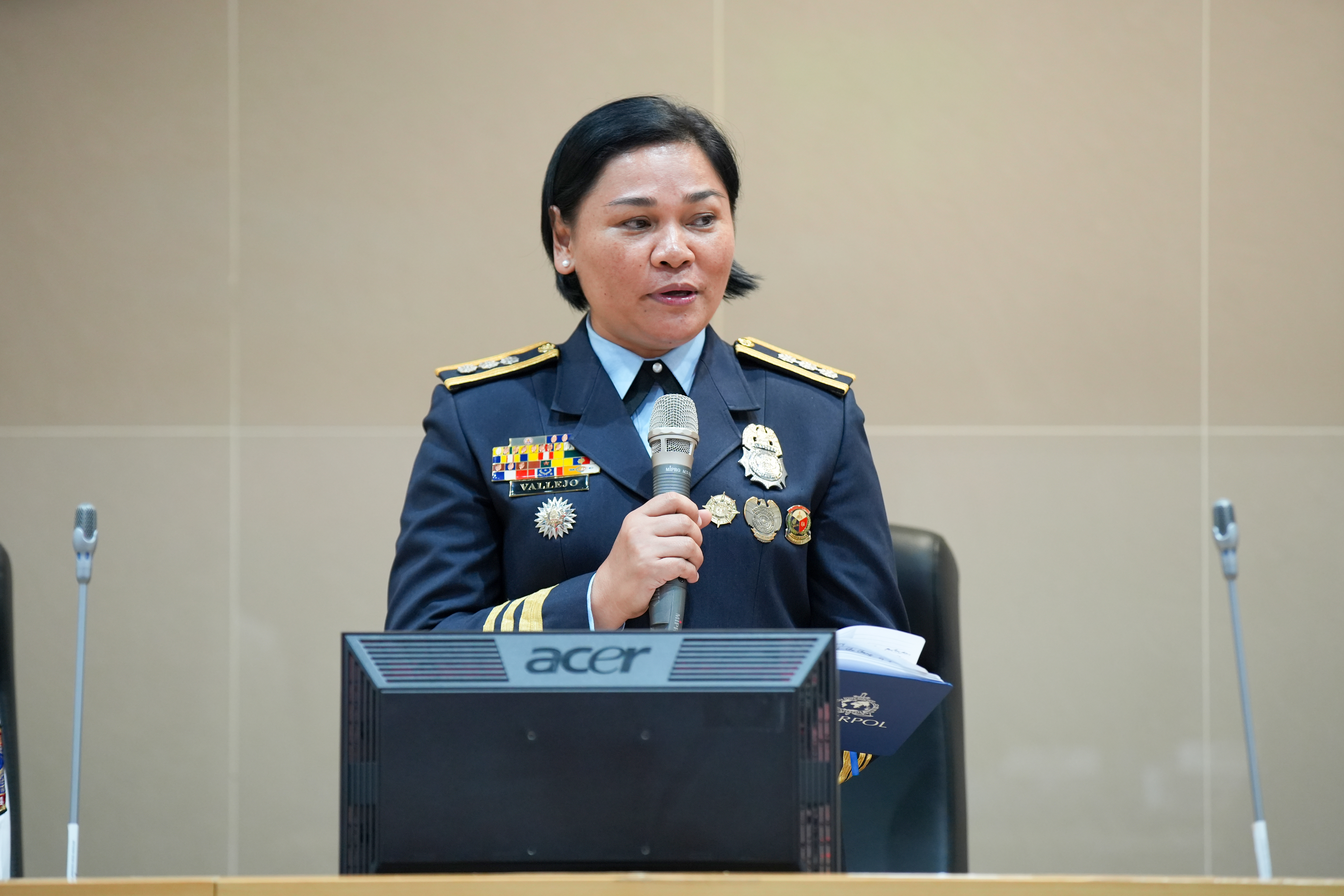
Following the ceremony, gifts were exchanged between institutions, symbolizing the growing trust and partnership between Taiwan and the Philippines. The training continues through the week, covering fire investigation, emergency drills, and post-disaster reconstruction, further strengthening joint disaster response capacity.
About the JTP Program and Its Policy Context
The Taiwan–Philippines Joint Force Training Program for Executive Officers (JTP) serves as a high-level platform for bilateral cooperation in disaster response and is closely aligned with the “Resilience Corridor” under Taiwan’s New Southbound Policy Plus (NSP+), led by the Taiwan-Asia Exchange Foundation (TAEF). NSP+ features six strategic corridors: three government-led (Digital Technology, Public Health, and Disaster Resilience) and three driven by civil society (Think Tanks, NGOs, and Youth). The Resilience Corridor focuses on early warning, response coordination, and the application of emerging technologies like drones and unmanned vehicles to strengthen regional disaster preparedness. Since 2023, TAEF and the National Fire Agency have co-organized multiple international training programs—including “The 2023 Japan-Taiwan-Philippines Training Program for Executive Officers,” “The 2023 Taiwan-Vietnam High-Tech Disaster Relief and Firefighting Training Camp,” and “The 2024 Taiwan-Philippines Training Program for Special Rescue Teams”—to build frontline capacity in NSP partner countries. TAEF also collaborates with its Asia Resilience Consortium (AEC) partners, Taiwan Disaster Prevention Industry Association, and Messe Frankfurt, to host its annual Asia Disaster Prevention. These initiatives reinforce Taiwan’s leadership in Indo-Pacific disaster diplomacy and its commitment to building a resilient, people-centered regional community.